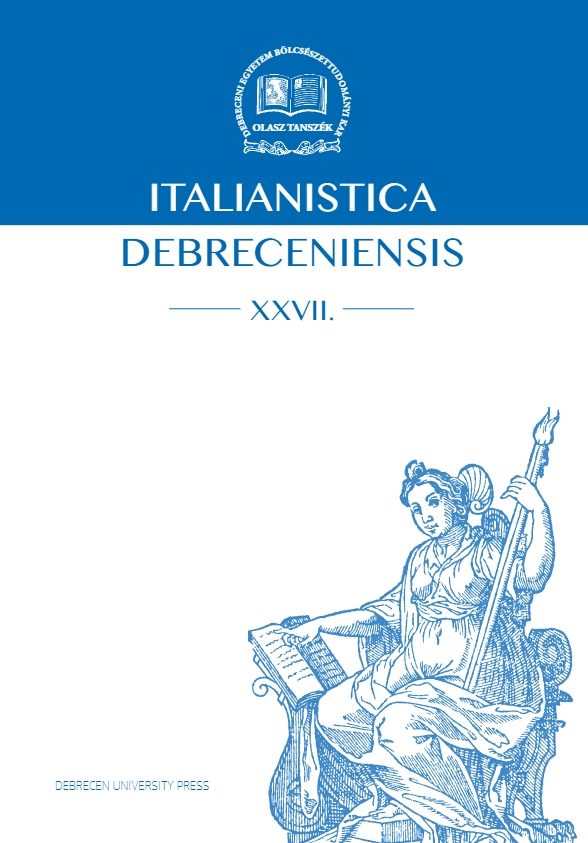Spiritualism and positivism in Luigi Capuana's short narrative
Author
View
Keywords
License
Copyright (c) 2022 Debora Bellinzani

This work is licensed under a Creative Commons Attribution 4.0 International License.
How To Cite
Abstract
Luigi Capuana believed in the immortality of the soul as conceived by theosophical theories, as well as in the perceptibility of the manifestations of the spirits. At the same time, his short stories and essays reflect his faith in the positivistic approach and in experimental sciences. During a period that sees the proliferation of seances evoking spirits, Capuana writes his only four short stories that depict the perceptible manifestation of a ghost. In Creazione (1901), La evocatrice and Forze occulte (1902), and Un vampiro (1904), the spirits appear and show a noticeable originality when compared to the ones that haunt contemporary ghost stories. By examining the structure of the mystery through Freud’s “uncanny”, and by exploring the content of the stories through Capuana’s key science concepts, the analysis will demonstrate how the subtraction of mystery as well as the reflection on science create a common literary ground where Spiritism and Positivism can surprisingly coexist. On that ground, the scientific openness to the discoveries of the Twentieth Century emerges with the strength of reassuring ghosts.

 https://doi.org/10.34102/itde/2021/11031
https://doi.org/10.34102/itde/2021/11031